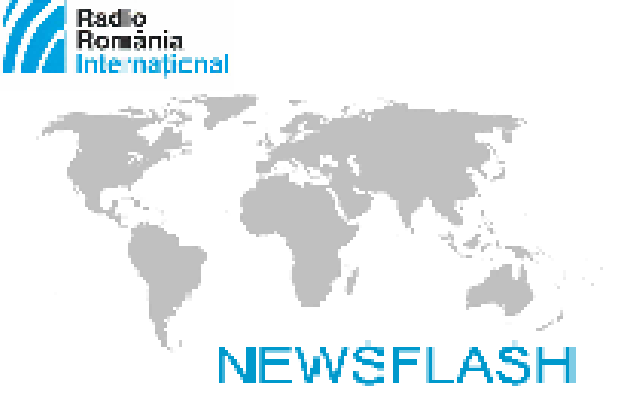November 8, 2014 UPDATE
Click here for a roundup of Romanian and international news

România Internațional, 08.11.2014, 18:41
The two candidates remaining in the race for the presidential seat in Romania, the Social Democrat Victor Ponta, a candidate of the alliance made up of the Social Democratic Party, the National Union for the Progress of Romania and the Conservative Party, and the Liberal leader Klaus Iohannis, representing the Christian Liberal Alliance made up of the National Liberal party and the Liberal Democratic Party, continue their election campaigns. On Saturday Romania’s incumbent president Traian Basescu suggested that a televised debate between the two candidates running for Romania’s presidential seat should take place at the Cotroceni Palace, the presidential headquarters. The president made this proposal against the backdrop of the failure of the two candidates’ electoral teams to agree upon a neutral venue for a possible debate between the two. In the first round of voting Ponta got 40.44% of the votes and Iohannis 30.37%.
The Central Electoral Bureau in Romania has pointed out that the responsibility for the organization of polling stations abroad lies, according to the law, exclusively with the Foreign Ministry. In a communiqué made public on Saturday the Central Electoral Bureau says they have clarified this aspect in a decision adopted on Tuesday, which excludes any legal obstacle in the way of setting up further polling stations for the Romanians abroad. Previously, the Romania foreign minister, Titus Corlatean, had said that the law did not allow for the setting up of new polling stations and the extension of the voting hours, but that they would increase the number of voting booths and stamps for the second round of the presidential election due on November 16th. For what he called serious deficiencies in the organization of the voting process abroad in the first round of voting, the incumbent president Traian Basescu called for the resignation of the foreign minister Corlatean and of the minister delegate for the Romanians in the Diaspora, Bogdan Stanoevici. In turn the PM Ponta said that minister Corlatean and his team at the foreign minister have guaranteed that on November 16th no Romanian citizen who wants to cast his or her vote will be left outside the polling stations. The statements follow the incidents reported in the first round of voting when the Romanians in the Diaspora queued for hours to cast their vote but did not manage to do so. Tension was reported at the polling stations in London, Munich, Chisinau and at the Romanian embassy in Paris where the French police had to intervene to prevent the escalation of the conflict.
The Romanian government on Saturday reiterated its support for neighboring Serbia’s EU accession. On the occasion of the inauguration of 3 new cross border points, the Romanian and Serbian prime ministers agreed on building a highway that should link the Serbian capital Belgrade to the city of Timisoara, in the west of Romania. They say the building of this highway will facilitate economic relations. A consistent supporter of Serbia’s European integration Romania is one of the 5 EU member states that have not recognized the independence of the former Serb province of Kosovo, with a majority Albanian population. Bucharest is however advocating for the observance of the rights of the ethnic minorities in Serbia, especially of the numerous Romanian community in Voivodina and Timoc Valley (in the east).
The Orthodox and Greek Catholic believers in Romania on Saturday celebrated Saints Archangels Michael and Gabriel, who according to theological teachings, are the highest of the angels, spiritual beings who were God’s messengers on earth. Archangel Michael led the Jewish people towards the Promised Land while Archangel Gabriel is the one who heralded the birth of prophet John the Baptist and of Jesus Christ the Redeemer. As many as 1 million 300 thousand Romanians who bear the names of the two archangels celebrated their name day on Saturday.
The city of Cluj Napoca (in the north west) on Saturday publicly marked the name day of the last king of Romania, King Mihai I. Aged 94, King Mihai I is also the last living head of state who experienced WWII. In 1944 he withdrew Romania from the Alliance with Nazi Germany and joined the United Nations, a move that, according to historians, shortened the war in Europe by at least 6 months. He was forced to abdicate and go into exile in 1947 when the country was actually under Soviet military occupation and was headed by a Communist government, controlled by Moscow. The King could return to Romania and regain his Romanian citizenship, withdrawn by the Communists, after the December 1989 events.




























